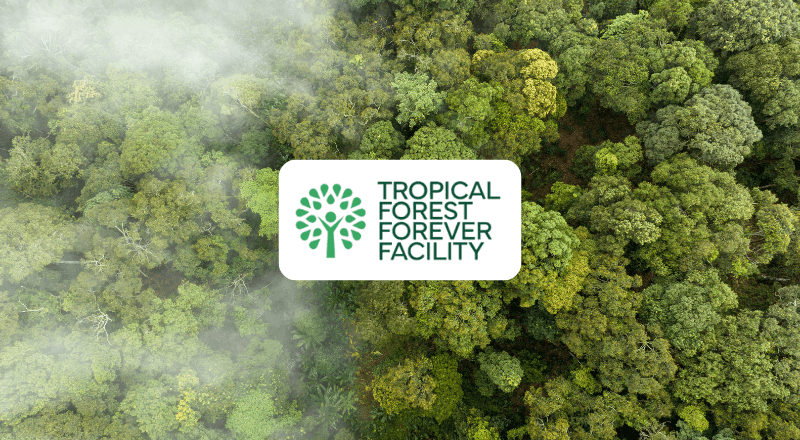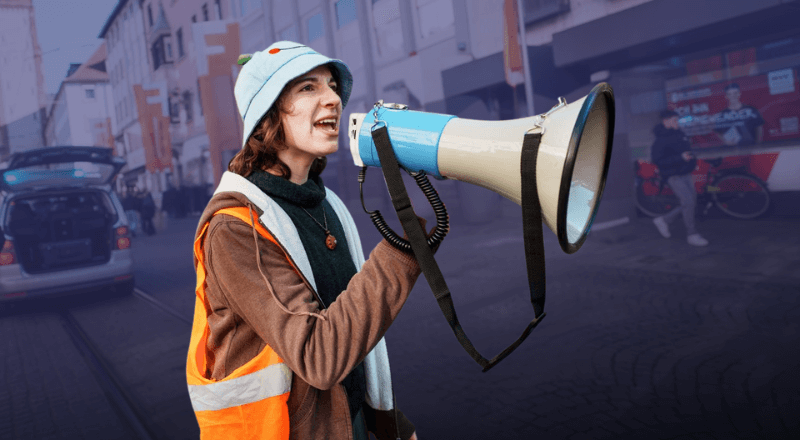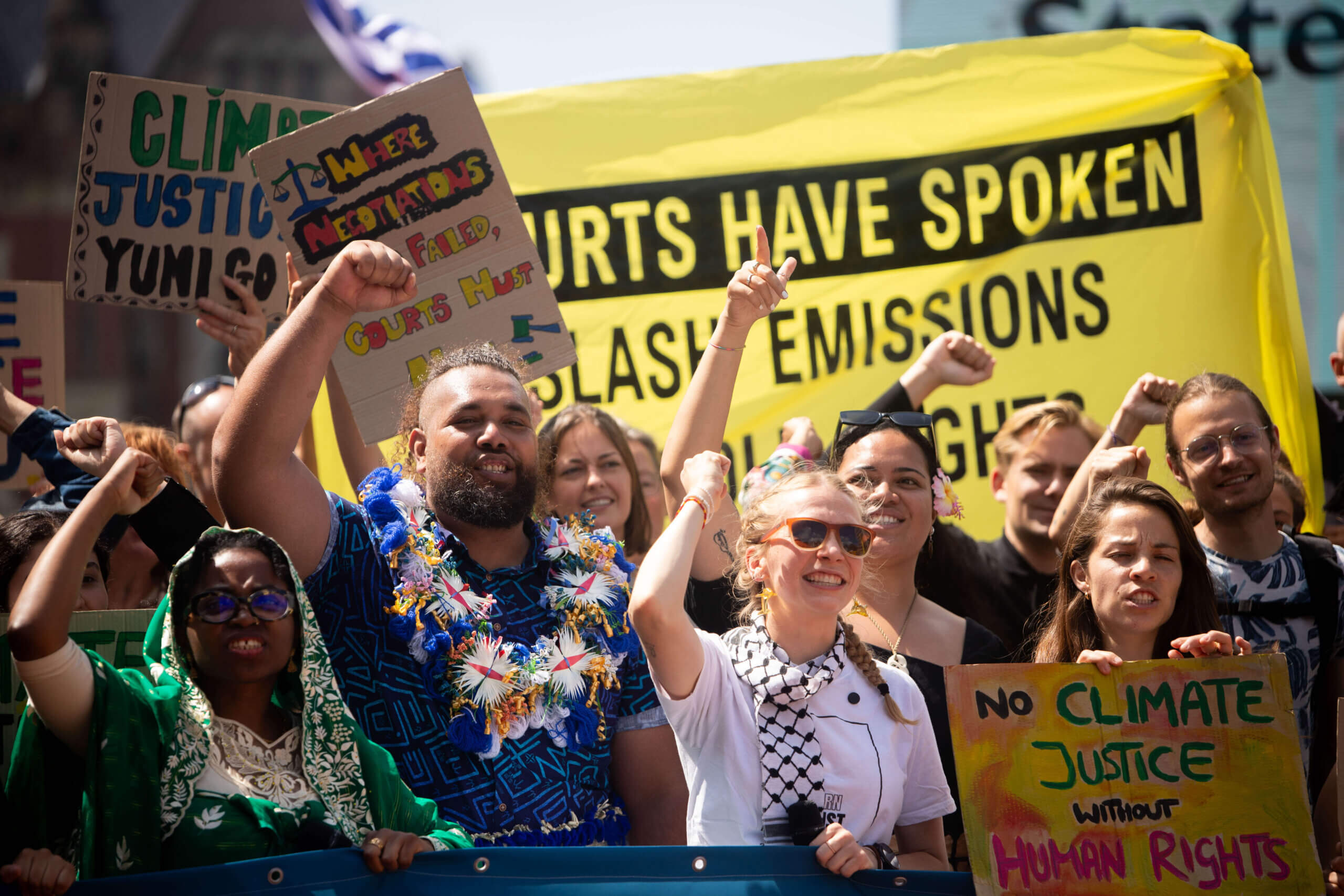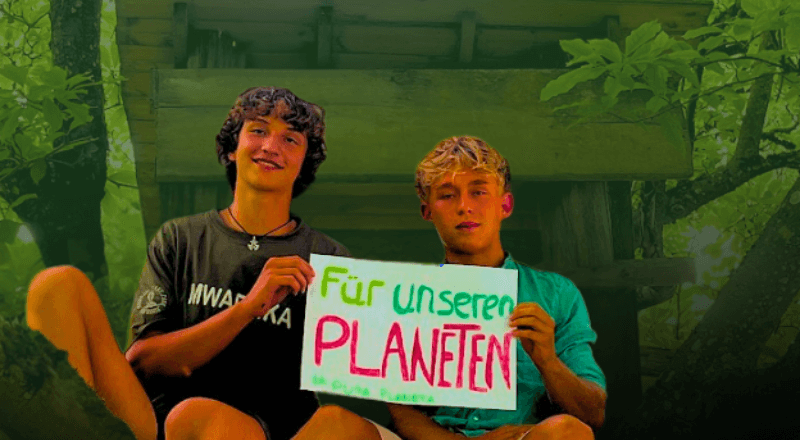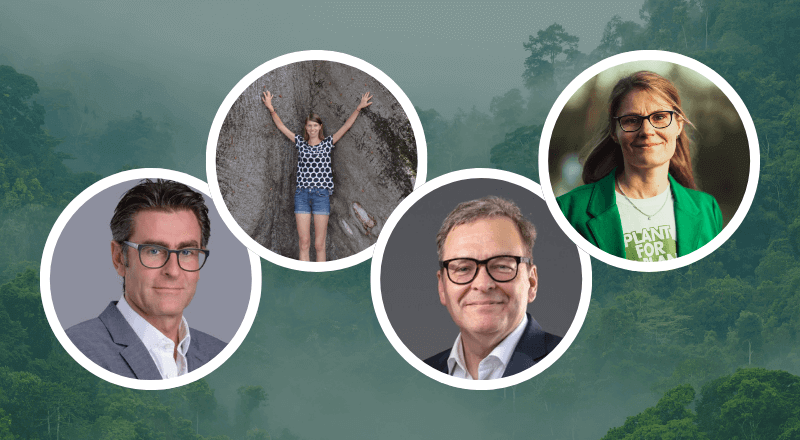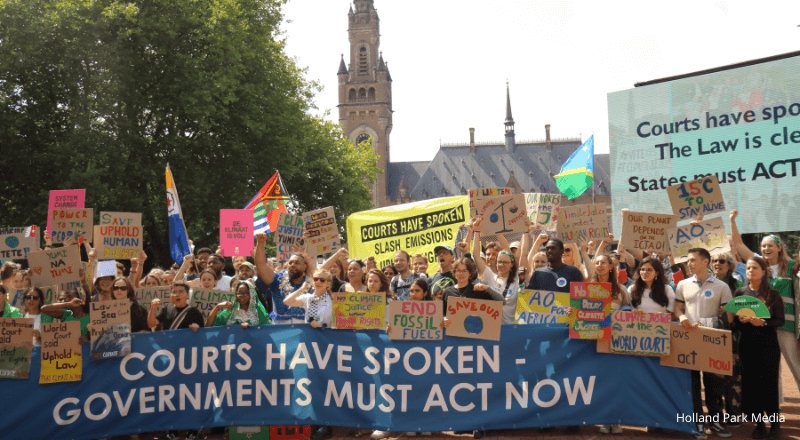
“When you die, I’ll still be alive!” is the story of children who have decided that they can no longer trust the adults. They have done different projects on the way to fulfill their dreams of a better world. They have incredible energy in the matter. They are part of a global network. They chat, discuss the status of their projects, take photographs, plant trees, hold lectures at children’s conferences – and sometimes also oat the international events of high politics. They work just as professionally as the adults – but they see things differently!
The film shows the children’s dedication. Adults are at best in this movie extras. The great crises in the world of children’s sight. So much would suddenly be so simple, the viewer also sees so much in a new light and so much will touch him.
The channel advertises the film as follows:
Felix is sitting in the auditorium of a large conference hall and will follow the speech by the former UN Secretary General Kofi Annan. Nervously, he rocks back and forth on his chair. He is on his way and has a unique opportunity to present his project to the heads of state and benefactors present. With trembling hands, the twelve year-old boy takes a neatly folded paper from the pocket of his hooded sweater goes over the first few sentences of his speech by again in his head. His heart beats loudly as Kofi Annan announces him. He gets up, walks deliberately onto the stage, routinely adjusts the microphone, takes a deep breath and begins his speech by saying: “Because I live longer than you …”

When, on 20 June 2012 the world anxiously examines the struggle for sustainable development at the UN Earth Summit in Rio, thousands of children worldwide are already committed to a better future.
The ARD / WDR documentary “Because I’ll live longer than you!” Tells the story of children who no longer trust the adults to leave their planet in a livable condition. They have made many different projects on the way and are fighting for their own future.
So, at the age of 11, Felix decided to plant one million trees to combat climate change. Two years later he has established a worldwide children’s network and with it placed five million trees. Felix gives lectures and conducts work-shops, chatting casually with Kofi Annan and Al Gore about his goals and woos celebrity supporters on the World Wide Web.
There he finds Roman. The 13-year-old lives in Iraq and lost his father in an attack. He is convinced that children that experience violence, will be terrorists later. Thus he draws daily from house to house and discussed with parents about why they beat their children. To impress Felix, he offers him to plant some trees.
“Is a thousand a lot?” “No,” believes Felix adamantly, and gets a promise for three thousand trees from Roman. But Roman seems doomed to fail: the families don’t like to see their children get publicly involved in political organizations: the fear of attacks is too high.
Felix also has to deal with setbacks. The first time that he gave a lecture not only seeking goodwill but also to collect donations, he met with icy disapproval. “Not a single company wants to support us?” He asks, bewildered and his voice almost broker. He left the stage speechless, his child’s soul deeply shaken.
Then Felix was invited to lecture in Kenya. There Fardosa interviewed him for her radio show. From the age of 8 she fought with all their might against circumcision. Today, at 15, she leads an organization that educates girls about their rights and supports them. She also wants to help Felix, because they understand the connection between hunger and climate change. “How did it feel to be terribly hungry?” Felix asked Fardosa – and a little later: “Do you have a USB stick? Then you can download my presentation!” Fardosa looks clueless in her mud hut where she lives with her father and sister. She wouldn’t even have electricity for a computer.
The documentary accompanies the three little “heroes” on their way – with wonder: After all, despite adverse conditions, all three have inexhaustible energy with their causes. They believe in themselves. They see the world differently. And so much seems new through their eyes.
Editors: Peter Nagel, Britta Windhoff (wdr.de)
Source: ARD on Wikipedia
